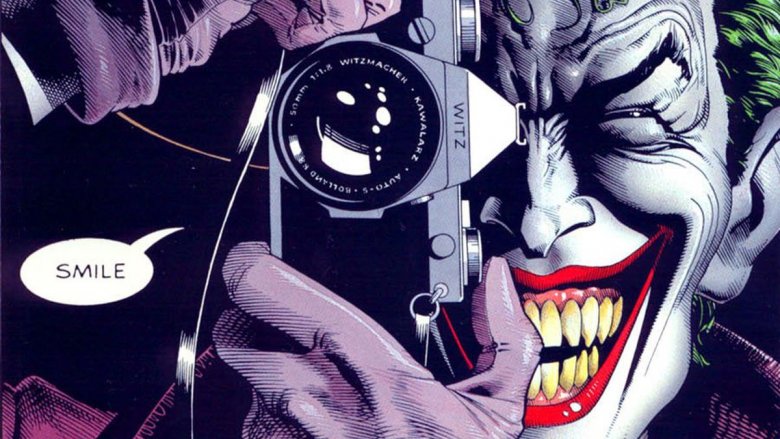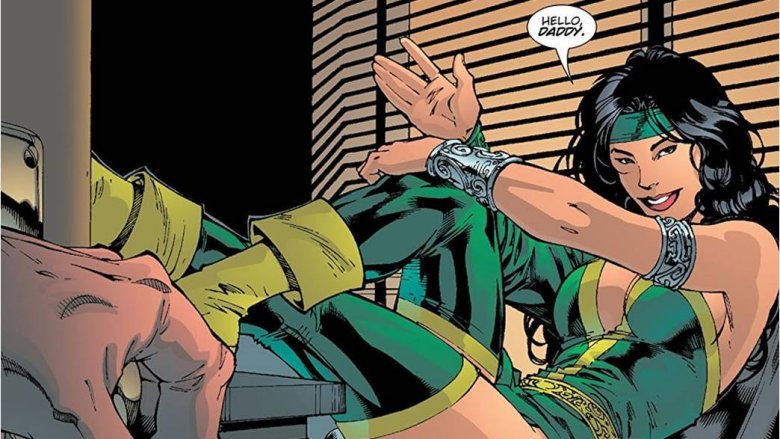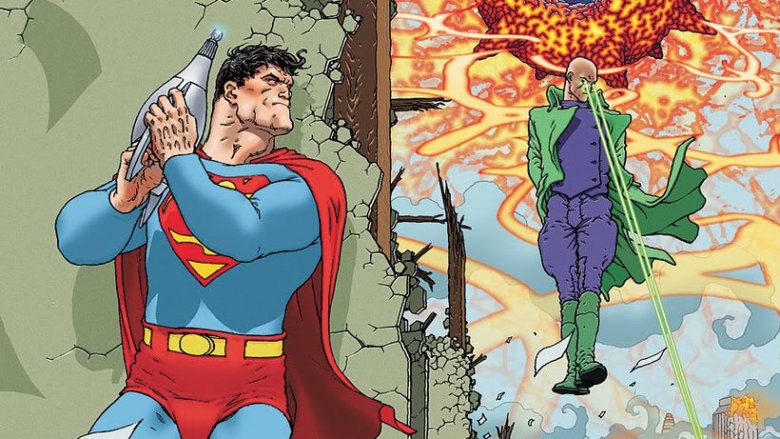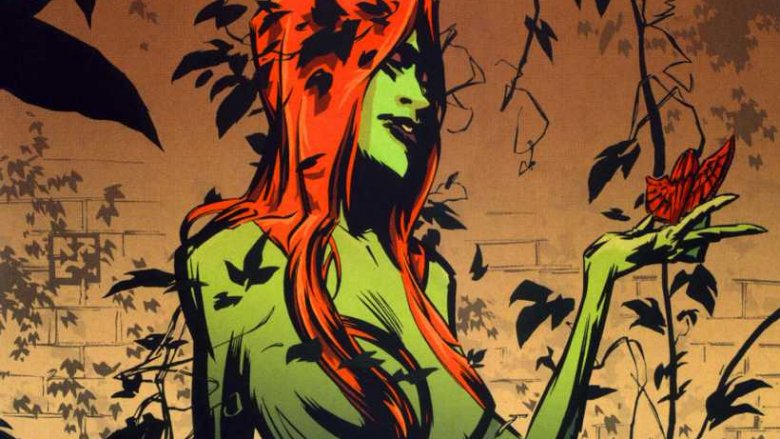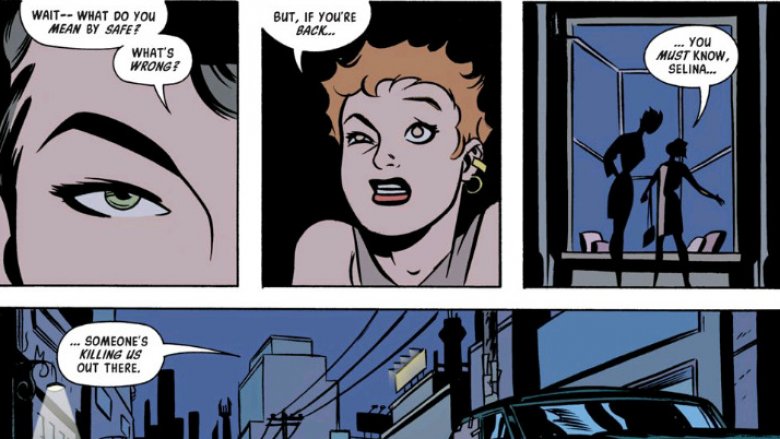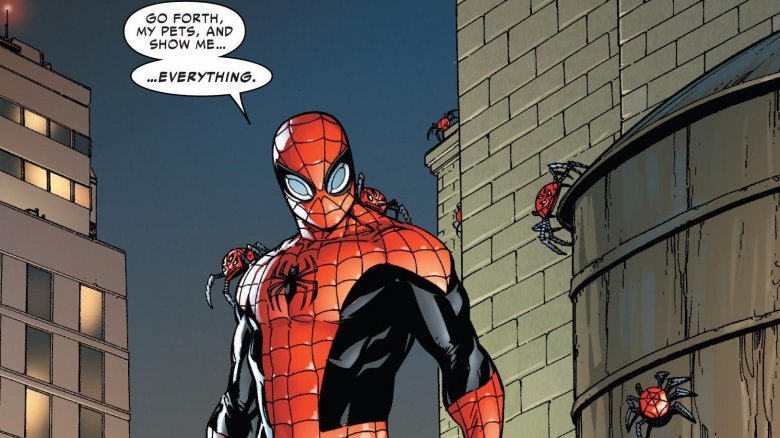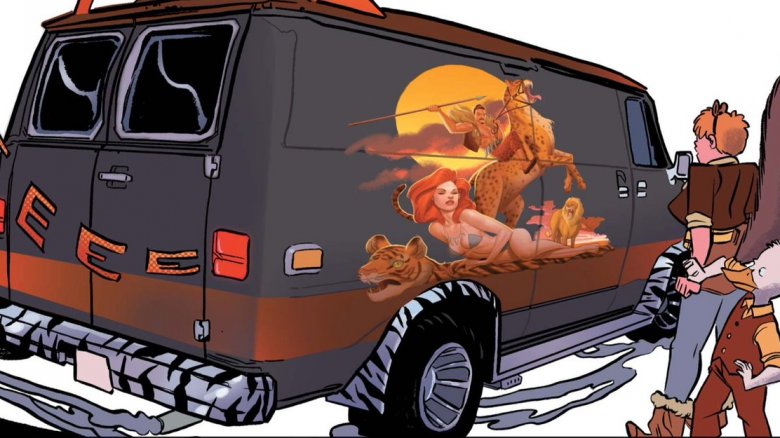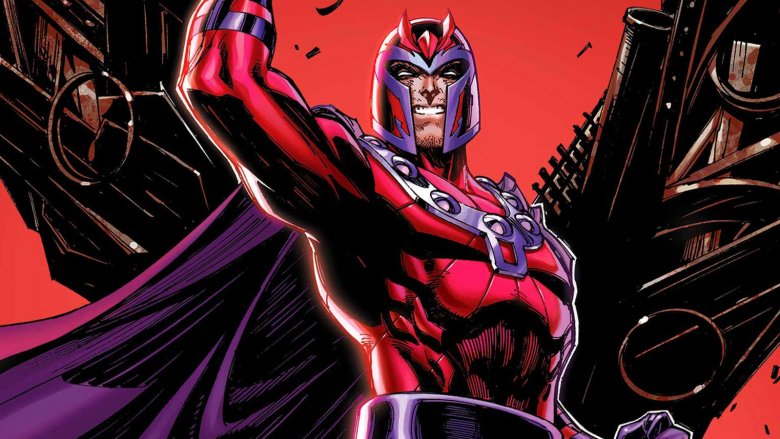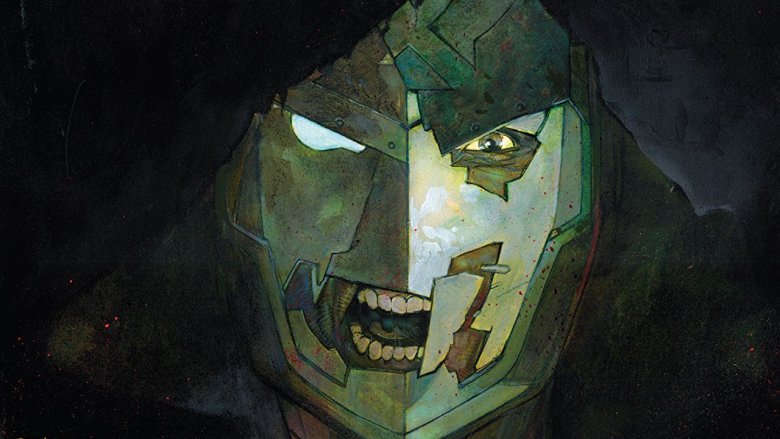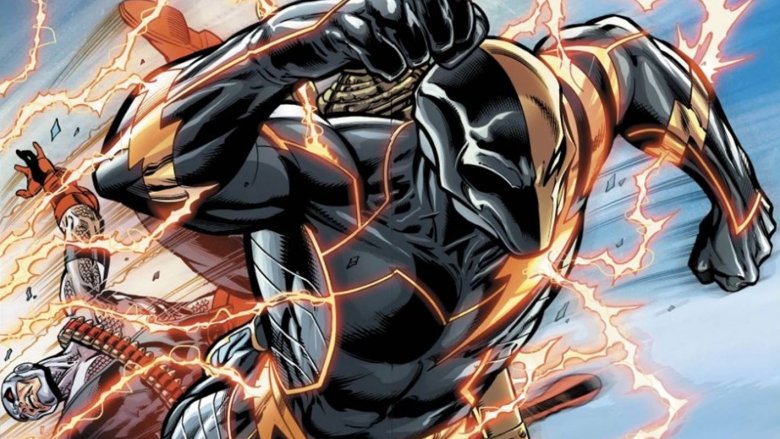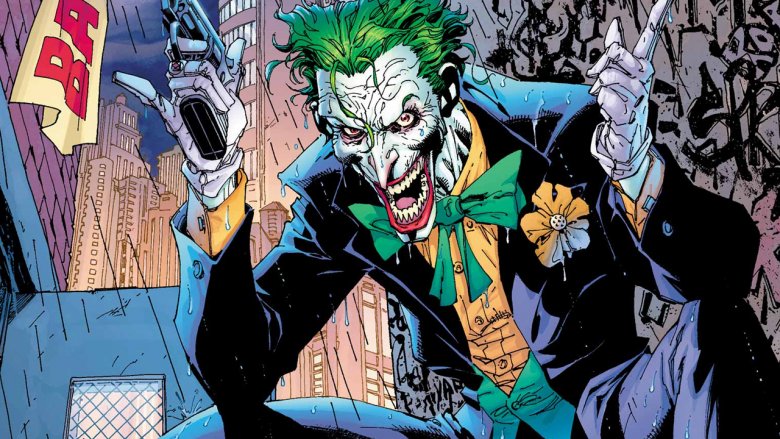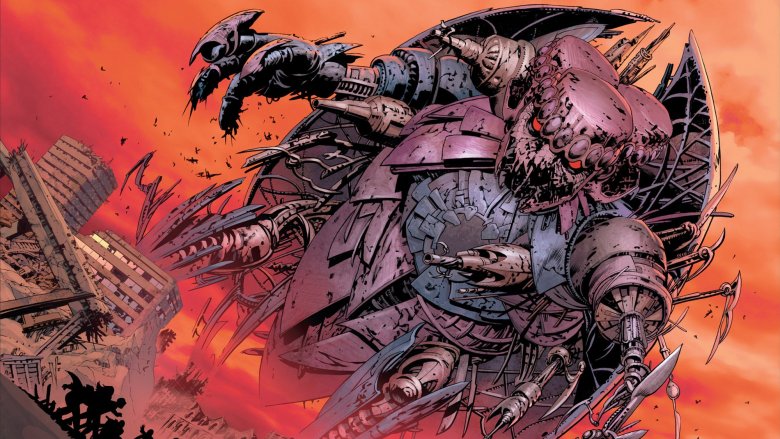The Most Heroic Thing These Comic Book Villains Have Ever Done
What's a superhero without a bad guy? A weirdo in a cape showing off for his own amusement, that's what. Batman's keen-eyed detective work stands in sharp contrast to the Joker's manic chaos. Superman's wholehearted goodwill opposes Lex Luthor's maniacal machinations. Spider-Man, the boy from Queens who caught either the world's luckiest or unluckiest break (depending on how his day is going), opposes Doctor Octopus, a man of comparable genius with none of Peter's conscience. Good and evil are forever entangled within these pages, for as often as good wins, that's how often evil gets back up and gives it another try.
But being good is never simple, as any superhero fan could tell you. Good guys step over the line sometimes in the pursuit of justice. Codes of honor are broken. Paths are tread that cannot go untrod. It was Peter Parker, after all, who let the criminal who would go on to murder his uncle go freely into the night. And just as our heroes contain shades of grey, so too do their villains. Who among the sinister rabble have had heroic moments? Quite a few, in fact. Here are a collection of the worst villains' most heroic moments, from selfless sacrifice to acts of altruism.
Cheshire's motherly sacrifice
As far as villains go, Cheshire keeps it classic. A deadly martial artist once referred to as the second-most deadly assassin in the world, she's the kind of villainess who dips her claws in poison. In her defense, Cheshire's upbringing didn't prepare her for much else; the product of an abusive relationship between a corrupt US senator and a Vietnamese woman, she was sold into slavery at an early age. After killing her master, she fell in with guerrilla fighters, elite assassins, and sundry other malcontents.
Something within her, however, retained the ability to love without cruelty. Speedy, a stalwart sidekick of Green Arrow and member of the Teen Titans, met her while undercover for the US government, and the two fell in love. Knowing he could never persuade her to join the forces of good, Speedy ended their relationship — only to learn, months later, that their union produced a daughter. Prepared for the worst, Speedy sought Cheshire out. But Cheshire handed their daughter, Lian, over. Despite her inflexibly malicious ways, she knew the greatest act of love as a mother she could perform was to make sure her little girl was raised in a world full of heroism. She may not be interested in changing, but that doesn't mean she wants her child to follow in her toxic footsteps.
Lex Luthor sees through Superman's eyes
Bad guys don't get much worse than Lex Luthor. He's been a mad scientist who threatened the world with armies of authoritarian automatons. He's infiltrated the halls of power, all the better to further his diabolical schemes. Even when all he's doing is sparring verbally with mild-mannered Clark Kent, he makes sure to get a dig or two in about Kent's supposed timidity and inability to interest Lois Lane. He's not just a bad guy — he's the bad guy.
But sometimes, he is driven to doing good deeds. Perhaps the most monumental of these moments came at the end of Grant Morrison and Frank Quitely's seminal All-Star Superman. Luthor, realizing he's managed to kill Superman through an overdose of solar radiation, puts his terrible plans for world domination into motion. Yet at the scheme's climax, he is granted Superman's abilities through a serum — and finds he cannot continue his villainy. Overwhelmed by how Superman "sees, all the time, every day," Luthor begins to weep. "It's all just us, in here, together," he mutters, awed, "and we're all we've got." Superman uses the moment to take him out with a punch, as Luthor insists he could have saved the world. He likely wouldn't have — but for a moment, he understood what, exactly, was so worth saving.
Poison Ivy, savior of orphans
Poison Ivy contains multitudes. Is she a seductress with hypnotizing, aphrodisiac kisses at her command? Yep. An eco-terrorist who would gladly use humanity as fertilizer? Absolutely. But she is also, shockingly, capable of loving those very same humans she so often seeks to destroy. Her fondness for Harley Quinn is the most obvious example of this tendency — she recently relinquished control of the world for love of the irrepressible clown — but there is another example of this curious soft spot. And it involved far more people than just one.
During DC's 1999 "No Man's Land" storyline, Gotham City was devastated by an earthquake. Those who weren't evacuated were trapped in a lawless land carved into villain-ruled fiefdoms, with sprawling Robinson Park under Ivy's control. But Ivy made the park into a haven, caring for the orphans that found their way there and, eventually, working with Batman to maintain the ravaged city's produce supply. Years after Gotham was put to rights, Ivy resurfaced in the pages of Gotham Central, executing a pair of crooked cops whose carelessness led to the death of one of Ivy's beloved orphans. She may not love people as a whole, but that doesn't mean she is without exceptions.
Catwoman hunts down a killer
Is Catwoman a villain? Though the feline-themed felon likes to play jump rope with the line between good and evil, she's spent most of her career doing dastardly deeds. She is, after all, the archetypal cat burglar: out for herself and all the jewels she can pilfer from Gotham's best-protected vaults. The rules only apply as much as she cannot get away with breaking them, and she can get away with breaking (or at least bending) nearly all.
But her 2002 solo series saw evil hit close to home — and Selina, confronted by an uncaring justice system, was driven to do something about it. The poorer East End of Gotham was plagued by a serial murderer who preyed on prostitutes, considered beneath notice of the city's lawmakers, enforcers, and commentators. Selina, recalling her past on those very same streets, working that very same job, devoted herself to protecting this vulnerable population and the East End in general. Her reign as guardian of the downtrodden led her to everything from a multi-million dollar diamond haul to a deadly confrontation with the criminal mastermind Black Mask. But for as long as Catwoman protected the East End, certain types of villainy did not go unnoticed — or unpunished.
Doc Ock learns to websling
Comics like to get weird. Worlds collide, realities go up in puffs of smoke, and at some point, a clone typically appears to cause some mayhem. But occasionally, a storyline comes along that is just so bizarre it demands a disclaimer. So it goes with Superior Spider-Man, a comic in which Otto Octavius, better known as Doctor Octopus, swapped consciousnesses with Peter Parker, thus taking over his young foe's healthy body and leaving Peter to die in Octavius' decaying shell. Octavius then sets out to be the best Spider-Man he can be and a better man than either he or Peter ever was.
The thing is? He didn't do a terrible job. Sure, he used unnecessary amounts of force, and yes, he did unleash an army of law-evading Spider-Bots upon an unwary populace. But he also used his genius to save a young girl from brain injury, countless civilians from violent crime, and even pushed away Mary Jane to keep her safe from the by-blows of his superheroic activities. Ultimately, Peter Parker regained his body and the world was set to rights. But for a relatively brief tenure, Doc Ock did manage to do a lot of good.
Kraven the Hunter makes a friend
Kraven the Hunter really sums up his mission in his name. He's after the biggest, baddest game out there, so dedicated to the purity of the hunt that he disdains bows and arrows, let alone guns, preferring to tackle his prey with his bare hands. The son of Russian aristocrats overthrown in the February Revolution, his driving goal is to take down Spider-Man, whose demise, he believes, will prove him to be the greatest hunter of all time. Though he obeys a code of honor, leading to moments of genuine heroism now and then, it has been so thoroughly twisted by his bloodlust as to make him one of the greatest Spidey villains of all.
But the thing is, that doesn't make him part of every hero's rogues gallery. When it comes to Squirrel Girl, whose greatest power proves to be her ability to befriend just about anyone, he's a downright ally. Convinced by Squirrel Girl that Spider-Man is not, in fact, the Marvel universe's most dangerous game, he takes on poachers, lends rides in his awesomely airbrushed "Kra-Van," and even protects Squirrel Girl's secret identity. It all goes to show that empathy is the greatest superpower of all — that and, y'know, a really cool van.
Magneto takes a look in the mirror
Just how bad is Magneto? Opinions range from "not at all" to "absolutely," all with multiple storylines to back them up. The dude has taken over the world multiple times, after all. He hasn't just been ruthless in his aims, but calculatingly violent, even dictatorial. Whatever positive goals he fights for never quite seem to stop him from subjugating others in their name.
And yet, those positive goals are very much present, and sometimes, his better angels help them along. This was very much the case when, in 1981's Uncanny X-Men #150, Magneto struck Kitty Pryde, apparently killing her, and immediately recoiled in shame. He granted Storm his permission to kill him, mired in guilt over the violence he had inflicted upon the sort of young person he had vowed to protect. This led to something like a redemption, at least for a while, and a friendship with Kitty Pryde that took them as far as a Holocaust survivor's conference in Washington, DC. Magneto might not be the upright face of mutantkind that Charles Xavier is, but he's certainly had his moments.
Doctor Doom becomes an Avenger
Much of the Marvel Universe found itself rearranged in the wake of the explosive "Civil War 2" event. Tony Stark, for example, was dead. A world without Iron Man was a dire prospect indeed, and so a hero stepped up to the arc reactor-powered plate, intent upon furthering the armored Avenger's mission. Was it a dyed-in-the-wool good guy? Not quite.
It was Doctor Doom.
The thing is, he wasn't half bad at the hero shtick. Sure, he encountered doubt everywhere he went, but in some ways, that only made him a more impressive guy. In spite of everyone's disbelief and the shadow of his many evil deeds, he did his best to make the world a safer, more just place. During his stint as a hero, he managed to deliver more superpowered bad guys to Riker's Island than any one superhero ever had before, according to the prison's warden. He even worked alongside SHIELD. He might have returned to villainy when the arc was over and done with, but for a while, he was every inch an Avenger.
Deathstroke's change of heart
The world of comic books is chockablock with mercenaries who command exorbitant prices in exchange from guaranteed kills. Deathstroke the Terminator is so skillful, so brutal, and so complex, however, that he manages to stand out even within this packed field. A former soldier, Deathstroke is proficient with an enormous arsenal of weapons, a huge array of martial arts, and was subject to experimentation in the military that turned up the volume on all of his carefully honed abilities. There's a reason he's been menacing the Teen Titans for years: it's enormously hard to get rid of the dude.
But Deathstroke is a also capable of love, altruism, and even mercy. A father of three, it is his children that typically bring these qualities out in him. "The Lazarus Contract," a 2017 Titans storyline, saw him trick Kid Flash into granting him a fraction of his powers, allowing him to travel back in time and attempt to save his son from death. Although he was unsuccessful, his time immersed in the Speed Force changed his perspective enough to make him start up his own do-gooding team of young heroes. Though he's unlikely to stick to heroism for very long, Deathstroke has certainly made the effort, and that counts for something in comic books.
The Joker goes sane
Superheroes can stop most crises, cataclysms, and catastrophes, but in 1998's Superman: Distant Fires, nuclear war thwarted them all. The story followed Superman as he trekked from the irradiated ruins of Metropolis to a sylvan enclave built by other superheroes who survived the apocalyptic event — and a few supervillains too. Alongside Wonder Woman, Martian Manhunter, The Flash, and a number of other heroes stood the Joker, calm opinions on village-building at the ready, a well-loved wrench in his hand. But in this razed world, he wasn't just a reformed evil-doer — he was a bona fide and beloved community leader.
Clad in sensible slacks, Superman discovered that the Joker didn't just work alongside the other survivors to carve out some semblance of civilization in the wilderness: he had devoted himself tirelessly to creating a generator capable of electrifying their humble settlement. The blast, which took away the powers of Superman, Wonder Woman, and other such heavy hitters, took away the Joker's mind-bending insanity, leaving him free to become a functioning member of society. Ultimately, the scorched earth could not be saved, and the new world fell to geologic upheaval. But for a while, the Joker worked to build a bright and hopeful future, one circuit at a time.
A Sentinel gains a conscience
Sentinels are among the X-Men's most perennial villains. Enormous robots built for one purpose — to exterminate mutants — over the years, they've fulfilled it frighteningly well. From the extermination of millions when the Sentinels attacked the mutant nation of Genosha to a future in which they rule the earth, glimpsed in the Days of Future Past storyline, they are a tireless army wielding ruthless precision. Though they tend not to be self-aware enough to count as true villains, they are, without question, one of the Marvel Universe's most formidable threats.
Once, however, there was a Sentinel that wanted to transcend his murderous programming. This sentinel was, in fact, the very one that exterminated Genosha. Brought back online by Danger, the then-evil artificial intelligence that had spent years powering the X-Men's training facilities, it was forced to confront its terrible deed by Kitty Pryde. This spurred the Sentinel into self-imposed exile, in an attempt to make peace with both its sentience and its past. Eventually, it gave its life in an effort to save the world from an alien assault. It might have been built for evil, but that Sentinel managed to do some good.
